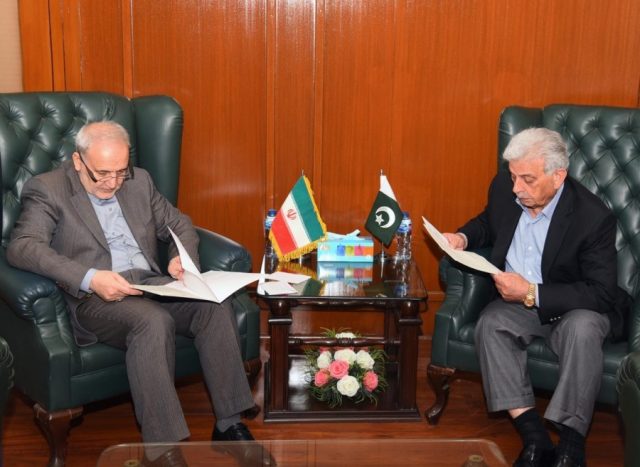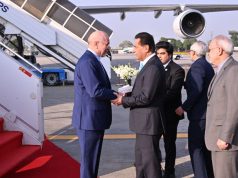ISLAMABAD, Tuesday, November 4, 2025 (WNP): Pakistan and Iran have agreed to deepen cooperation in agriculture, food security, and trade, with both sides reaffirming their resolve to achieve the ambitious goal of $10 billion in bilateral trade, a move aimed at strengthening regional economic integration and ensuring food stability.
During a meeting with Iranian Ambassador to Pakistan Reza Amiri Moghadam, Federal Minister for National Food Security and Research Rana Tanveer Hussain underscored Pakistan’s readiness to explore innovative and mutually beneficial agricultural partnerships, the ministry said in a statement.
Rana Tanveer highlighted that Pakistan’s high-quality agricultural products—particularly rice, maize, and fodder—offer Iran a cost-effective and geographically closer alternative to distant suppliers such as Brazil and Australia.
He welcomed Iran’s proposal for extra-territorial cultivation on Pakistani soil, describing it as an innovative step toward sustainable agriculture and regional food resilience. “Such collaborations will not only enhance productivity but also help both nations tackle the growing impacts of climate change,” he added.
The minister expressed confidence that the growing partnership would open new avenues for joint agricultural research, improved food security, and regional prosperity, emphasizing Pakistan’s commitment to sustainable farming and export diversification.
The Iranian Ambassador conveyed an invitation from Iran’s Minister of Agriculture Jihad for Rana Tanveer to attend the upcoming ECO Summit on February 17, 2026, and reiterated Tehran’s keen interest in expanding agricultural trade with Islamabad.
Ambassador Moghadam revealed that Iran plans to import 350,000 livestock from Pakistan, alongside existing agreements for rice imports, which are expected to be finalized soon. He added that wheat imports from Pakistan are already underway, and that Iran is ready to purchase maize and fodder in whatever quantity Pakistan can supply.
Highlighting the natural synergies between the two countries, both sides noted that shared agro-climatic conditions create a strong foundation for collaboration in research, seed development, and technology transfer.
The Iranian envoy also proposed joint ventures in modern irrigation systems, drought-resistant crop varieties, and organic farming, as well as training and capacity-building programs for agricultural scientists and technical experts from both nations.
Concluding the meeting, both sides reaffirmed their determination to work together in the spirit of friendship, mutual benefit, and regional solidarity, laying the groundwork for a stronger Pakistan–Iran partnership in food security and sustainable agricultural development.




